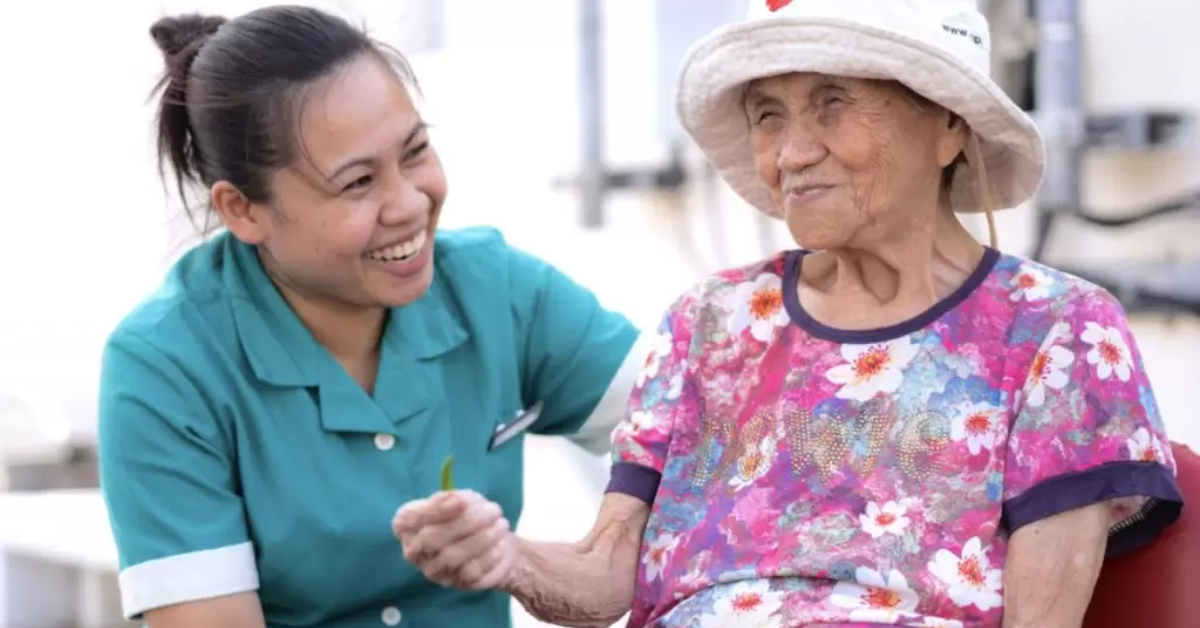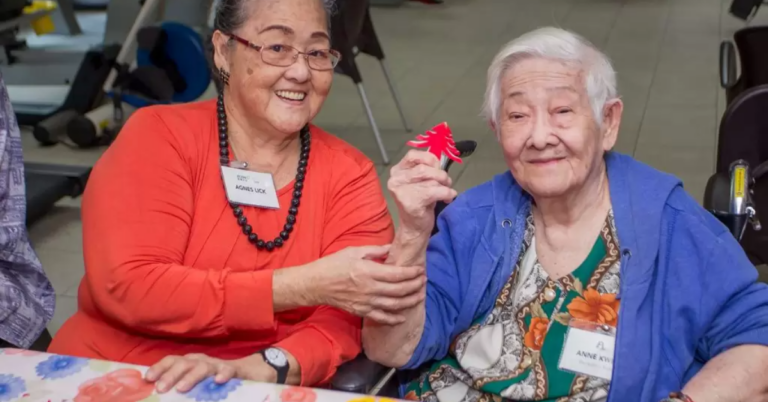Elderly Home: A Safe Haven for Senior Care and Well-being
As the population ages, the demand for compassionate, comprehensive care for the elderly continues to grow. An Elderly Home plays a vital role in providing seniors with a secure, nurturing environment that supports their health, independence, and social needs. This blog will explore what an elderly home is, the types of care available, benefits of choosing one, and practical advice for families considering this important step.
What is an Elderly Home?
An elderly home is a residential facility designed specifically for seniors who need assistance with daily living activities, healthcare monitoring, or simply prefer living in a community with peers. These homes ensure that elderly residents receive the support they need while maintaining dignity, comfort, and opportunities for social engagement.
Unlike living alone or with family, elderly homes are equipped with trained professionals who understand the unique needs of aging individuals and can provide both medical and emotional support.
Types of Elderly Homes
Different elderly homes cater to various levels of care and independence. The main types include:
Assisted Living Facilities
These homes provide support for seniors who can mostly care for themselves but need help with certain tasks like medication management, bathing, or meal preparation. Assisted living offers a blend of independence and assistance.
Nursing Homes
Nursing homes provide around-the-clock medical care and support for seniors with significant health issues or mobility challenges. Skilled nursing staff are available to manage chronic illnesses and rehabilitation needs.
Retirement Homes
Retirement homes cater to seniors who are active and independent but prefer the convenience and community atmosphere of living among peers with access to some support services.
Memory Care Units
Specialized for seniors with dementia or Alzheimer’s disease, these units offer a secure environment with programs designed to enhance cognitive function and safety.
Why Consider an Elderly Home?
Choosing an elderly home can be a difficult decision, but it often brings numerous benefits:
Professional Healthcare and Support
Elderly homes employ trained nurses, caregivers, and therapists who provide consistent monitoring and healthcare, ensuring that medical needs are promptly addressed.
Safety and Accessibility
Facilities are designed with seniors in mind, incorporating safety features such as handrails, emergency alarms, and wheelchair accessibility to reduce the risk of falls or injuries.
Social Engagement and Mental Well-being
Social isolation is a common problem for many elderly individuals. Elderly homes encourage participation in group activities, fostering friendships and stimulating mental health.
Relief for Family Caregivers
Families often find it challenging to provide full-time care. Elderly homes offer peace of mind knowing that their loved ones are cared for by professionals in a supportive setting.
Personalized Care Plans
Care is tailored to each resident’s physical, emotional, and social needs, ensuring a holistic approach to their well-being.
Services Commonly Offered in Elderly Homes
Elderly homes provide a wide range of services, which may include:
Medical Care and Monitoring
-
Regular health check-ups and vital sign monitoring
-
Medication administration and management
-
Assistance with chronic disease management
-
Rehabilitation services such as physiotherapy
Personal Care Assistance
-
Help with bathing, dressing, grooming, and toileting
-
Mobility support, including the use of mobility aids
-
Meal planning and feeding assistance if needed
Recreational and Social Activities
-
Exercise programs tailored for seniors
-
Arts, crafts, music, and hobby groups
-
Cultural events and social outings
Nutritional Services
-
Balanced meals designed to meet dietary needs
-
Special diets for conditions like diabetes or hypertension
Housekeeping and Maintenance
-
Regular cleaning and laundry
-
Maintenance of safe and comfortable living spaces
How to Choose the Right Elderly Home
Selecting the right elderly home requires thorough research and consideration of the senior’s needs and preferences.
Evaluate Care Requirements
Determine the level of medical and personal care the senior requires to choose a facility equipped to meet those needs.
Visit Multiple Facilities
Tour various elderly homes to observe the environment, cleanliness, staff interactions, and resident satisfaction.
Check Accreditation and Licensing
Ensure the facility complies with national and local health and safety regulations and holds proper accreditation.
Assess Staff Qualifications
Inquire about staff training, experience, and resident-to-staff ratios to ensure adequate care and attention.
Consider Location
Choose a facility conveniently located for family visits and accessibility to healthcare services.
Review Cost and Financial Aid
Understand the fees, payment plans, and available government subsidies or financial assistance programs.
The Role of Elderly Homes in Singapore
Singapore has a growing elderly population, and elderly homes have become an integral part of the healthcare ecosystem.
-
Government Support: Various subsidies and schemes are available to make elderly care more affordable.
-
Quality Standards: Elderly homes in Singapore adhere to strict regulations ensuring safety and quality of care.
-
Cultural Sensitivity: Facilities often provide meals and activities aligned with residents’ cultural backgrounds.
-
Community Integration: Many homes promote interaction with local communities, helping seniors stay connected and engaged.
When is it Time to Consider an Elderly Home?
Recognizing when a senior needs to move into an elderly home can be challenging. Some signs include:
-
Frequent falls or accidents at home
-
Declining ability to perform daily tasks
-
Memory loss or cognitive decline affecting safety
-
Social withdrawal and loneliness
-
Medical conditions requiring regular monitoring
-
Caregiver exhaustion or inability to provide adequate care
If these signs arise, it’s important to discuss options with healthcare professionals and the senior involved.
Preparing for the Transition
Moving into an elderly home can be a significant life change. Preparation can ease the transition:
-
Involve the Senior: Include them in decisions and visits to prospective homes.
-
Pack Familiar Items: Personal belongings help create a comforting and familiar environment.
-
Maintain Connections: Plan regular visits and encourage family participation in social activities.
-
Provide Emotional Support: Understand and address concerns or anxieties related to the move.
Benefits Beyond Care: Enhancing Quality of Life
Elderly homes offer more than just physical care. They focus on enriching the lives of their residents through:
-
Emotional Support: Professional counseling and peer support groups.
-
Mental Stimulation: Activities like puzzles, games, and learning sessions.
-
Physical Wellness: Group exercise classes, walking clubs, and physiotherapy.
-
Nutritional Health: Balanced meals that cater to specific health requirements.
These holistic approaches help seniors maintain independence and a positive outlook on life.
Conclusion
An elderly home provides a safe, supportive, and engaging environment for seniors who need assistance or simply want a community that understands their unique needs. It offers professional healthcare, social interaction, and peace of mind to families. By carefully evaluating options and considering individual needs, families can find an elderly home that ensures comfort, dignity, and quality of life for their loved ones.
Choosing the right elderly home is an important decision that impacts the well-being of seniors. Taking time to research, visit, and consult professionals will lead to a choice that brings security and happiness for the years ahead.
Frequently Asked Questions (FAQ)
What is an elderly home?
An elderly home is a residential facility designed to support seniors with daily living, healthcare, and social needs in a safe and comfortable environment.
How is an elderly home different from assisted living?
While all elderly homes provide support, assisted living facilities generally offer less intensive medical care, focusing on daily assistance and promoting independence.
Are elderly homes suitable for seniors with dementia?
Many elderly homes have specialized memory care units equipped to support residents with dementia safely and effectively.
How do I choose the best elderly home for my loved one?
Consider care needs, location, facility reputation, staff qualifications, amenities, and cost. Visiting several homes helps in making an informed decision.
Can families visit their loved ones in elderly homes regularly?
Yes, most elderly homes encourage family visits and participation in activities to maintain strong connections.







